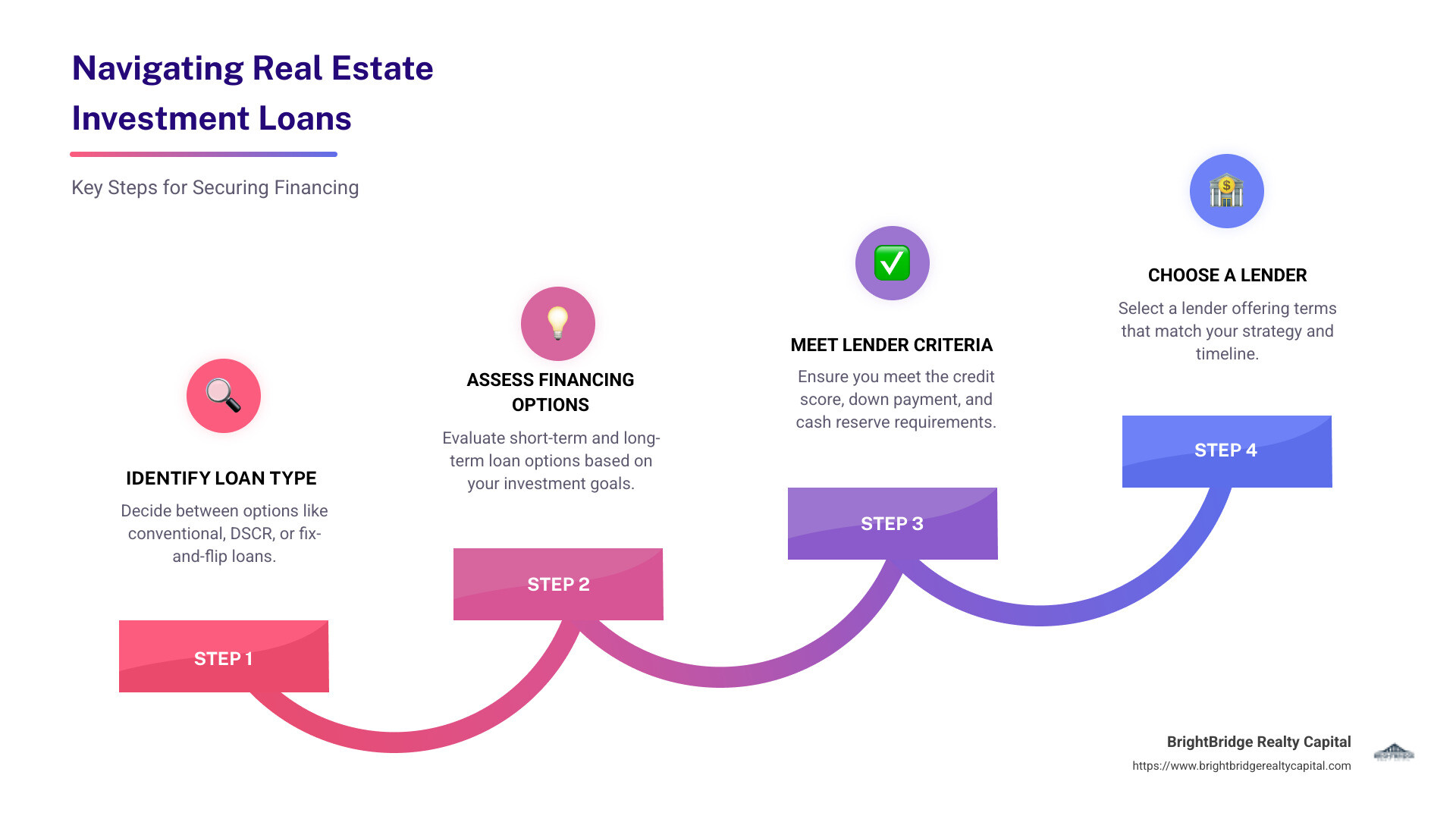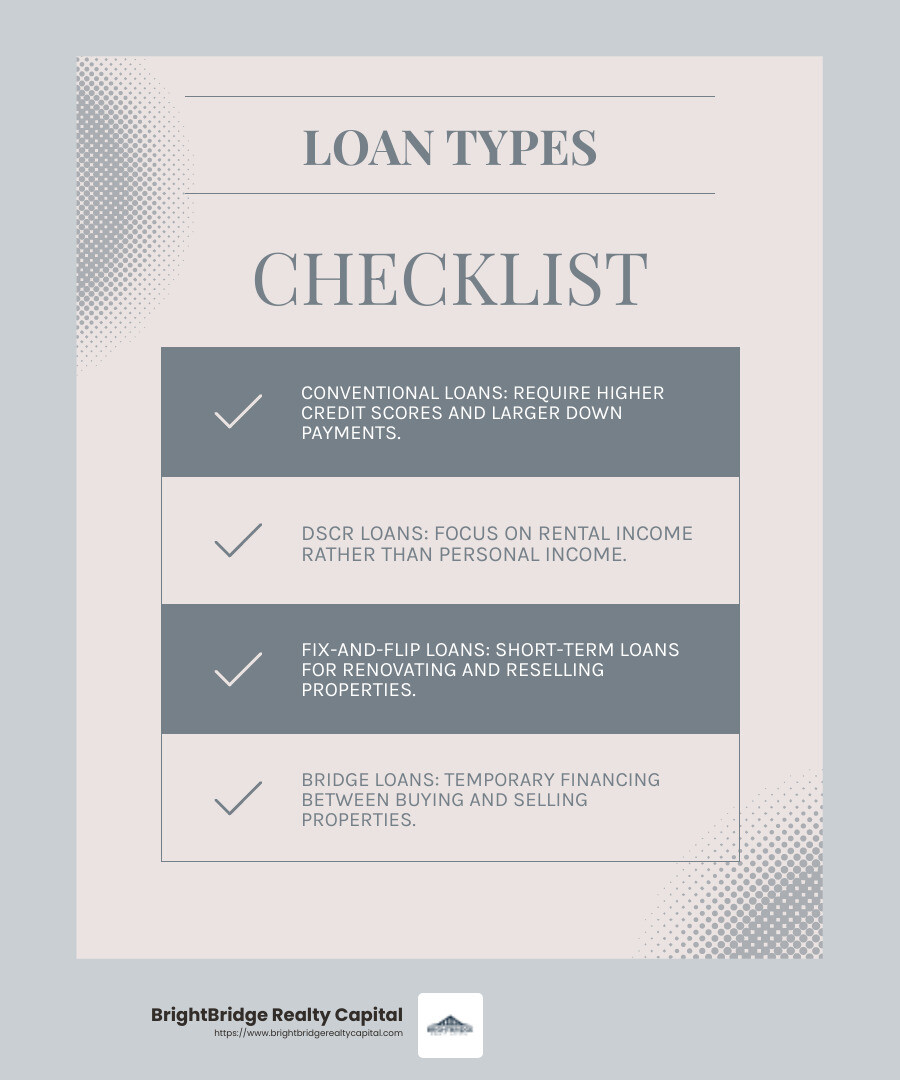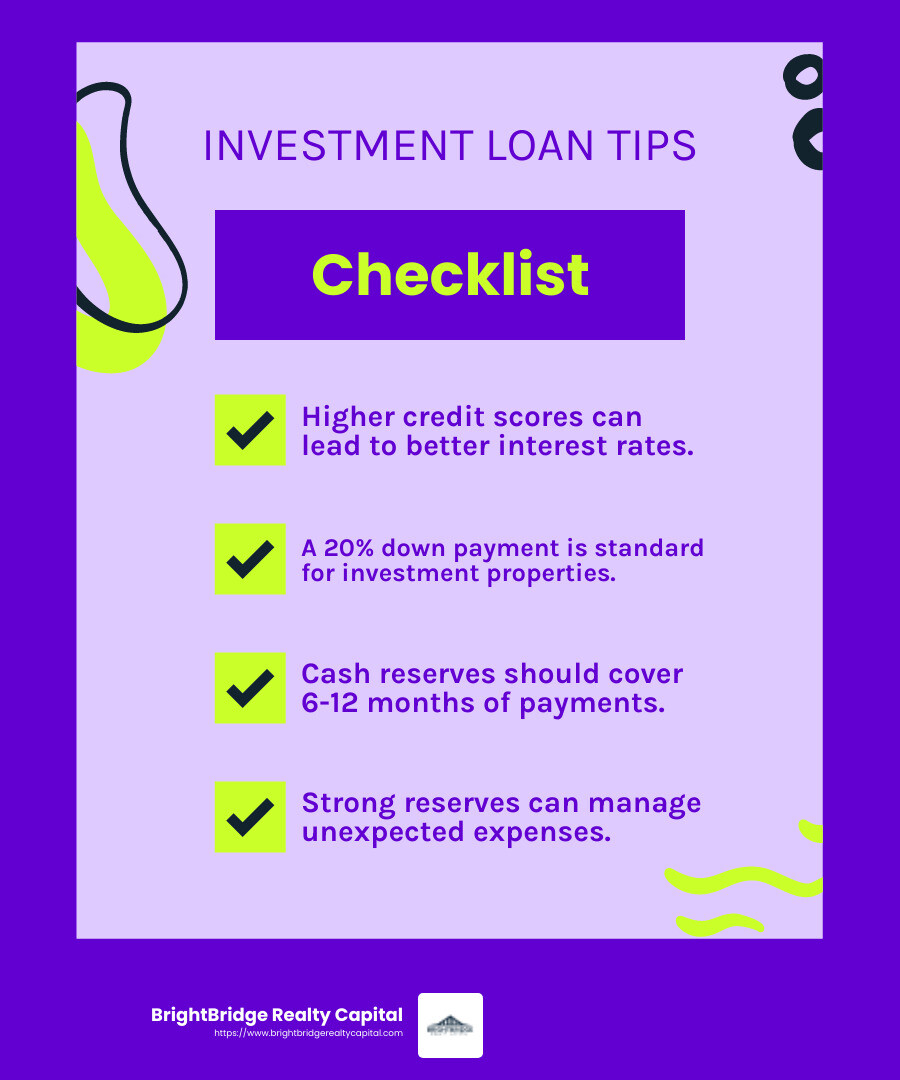Invest with Confidence: Leading Real Estate Lenders

Real estate investment lenders play a pivotal role in the journey of every savvy investor, especially when it comes to securing the right financing for investment properties. For those looking to invest in real estate, whether through acquiring fix-and-flip projects or expanding rental portfolios, having reliable and flexible lenders is crucial. These lenders offer a range of financing options custom to meet the diverse needs of investors, allowing them to seize opportunities quickly and effectively.
- Investment Property Loans: These loans are specifically designed to finance properties not intended as your primary residence. They include a variety of products such as conventional loans, DSCR loans, and fix-and-flip loans.
- Financing Options: With choices ranging from short-term bridge loans to long-term conventional mortgages, investors have the flexibility to choose the type of financing that aligns with their goals and property strategies.
In today's dynamic real estate market, navigating through an abundance of loan options can be overwhelming. However, understanding the available opportunities can empower you to make informed decisions, ensuring that your investment journey is both smooth and successful.

Find more about Real estate investment lenders:
Understanding Real Estate Investment Loans
Real estate investment loans are essential tools for anyone looking to dive into property investment. These loans are designed to help you acquire properties that generate income, such as rental homes or commercial spaces. Let's break down the types of loans, how they relate to investment properties, and what you need to know about mortgage rates.
Loan Types
There are several types of loans available for real estate investors, each catering to different investment strategies and financial situations:
Conventional Loans: These are the most common type of real estate investment loans. They are usually offered by banks and mortgage lenders and follow guidelines set by Fannie Mae and Freddie Mac. Conventional loans typically require a higher credit score and a larger down payment than loans for primary residences.
DSCR Loans: Debt Service Coverage Ratio (DSCR) loans are popular among investors who rely on rental income to qualify for a loan. These loans consider the property's income potential, allowing investors to qualify based on rental income rather than personal income.
Fix-and-Flip Loans: These short-term loans are designed for investors who buy properties to renovate and resell quickly. They usually cover the purchase price and the cost of renovations, with the expectation that the property will be sold for a profit.
Bridge Loans: These are short-term loans that help investors "bridge" the gap between buying a new property and selling an existing one. They provide temporary financing to cover the purchase until long-term financing is secured or the property is sold.
Investment Property
Investment properties are real estate assets purchased to generate income, either through renting or reselling. These properties can be residential, like single-family homes or multi-unit buildings, or commercial, such as office spaces or retail locations. The key to successful investment property ownership is understanding the market and choosing properties that will provide a good return on investment.

Mortgage Rates
Mortgage rates for investment properties are typically higher than those for primary residences. This is because lenders view investment properties as riskier investments. However, putting down a larger down payment can often result in better rates. It's important to shop around and compare rates from different lenders to find the best deal.
Factors that influence mortgage rates include:
- Credit Score: A higher credit score can help you secure lower interest rates.
- Loan Term: Shorter loan terms often come with lower interest rates but higher monthly payments.
- Market Conditions: Rates can fluctuate based on economic factors and market trends.
Understanding these elements can help you choose the right loan and lender for your investment needs. As you explore your options, the right financing can make all the difference in the success of your real estate investment journey.
Top Real Estate Investment Lenders
When it comes to real estate investment lenders, understanding the options available can be the key to success. Let's explore the loan options, lending criteria, and loan terms that top lenders offer to help you make informed decisions.
Loan Options
Real estate investment lenders provide a variety of loan options custom to different investment strategies:
DSCR Loans: These loans are designed for investors who rely on rental income. They consider the property's income potential, making them ideal for those who want to qualify based on rental income instead of personal income.
Fix-and-Flip Loans: Perfect for short-term investors who buy, renovate, and resell properties. These loans typically cover both the purchase and renovation costs, enabling quick turnarounds.
Fix to Rent Loans: For investors looking to renovate properties and then rent them out, these loans offer up to 95% loan-to-cost (LTC), with discounts and rate reductions throughout the BRRRR strategy.
SFR Portfolio Rental Loans: These loans allow investors to consolidate multiple single-family rentals into one loan, simplifying management and payments.
Lending Criteria
Top lenders have specific criteria that borrowers must meet to qualify for investment loans:
Credit Score: A strong credit score is crucial. Higher scores often translate to better interest rates and loan terms.
Down Payment: Investment properties usually require a larger down payment compared to primary residences. A 20% down payment is common, but larger down payments can lead to better loan terms.
Cash Reserves: Lenders typically require borrowers to have cash reserves to cover several months of mortgage payments, ensuring that they can manage payments even if rental income fluctuates.
Loan Terms
Loan terms can vary widely depending on the lender and the type of loan:
Interest Rates: Expect higher rates for investment properties compared to primary residences. However, a larger down payment and a high credit score can help secure more favorable rates.
Loan Duration: Terms can range from short-term (1-3 years for fix-and-flip loans) to long-term (up to 30 years for rental properties), depending on the investment strategy.
Prepayment Penalties: Some loans may include penalties for paying off the loan early. It's crucial to understand these terms before committing.
When choosing a lender, consider these factors alongside your investment strategy. The right lender can provide the financial backing and flexibility needed to grow your real estate portfolio confidently.
Real Estate Investment Lenders: Key Considerations
When working with real estate investment lenders, there are critical factors to consider. These include your credit score, down payment, and cash reserves. Understanding these elements can help you secure better loan terms and make smarter investment decisions.
Credit Score
Your credit score is a vital part of the loan application process. It shows lenders your creditworthiness and ability to manage debt responsibly.
Higher Scores Mean Better Rates: Generally, a higher credit score can lead to lower interest rates and more favorable loan terms. For investment properties, lenders often require a higher credit score than they would for a primary residence.
Monitoring and Improvement: If you're a U.S. Bank customer, you can monitor your credit score for free using their tools. Regularly checking your score can help you identify areas for improvement before applying for a loan.
Down Payment
Investment properties typically require a larger down payment than primary residences. Here's why it matters:
20% is Common: A down payment of 20% or more is standard for investment properties. This shows lenders you're serious and reduces their risk, which may result in a lower interest rate.
Benefits of a Larger Down Payment: Putting more money down can give you better loan terms. It reduces the loan amount and can lead to lower monthly payments and interest costs over time.
Cash Reserves
Having cash reserves is crucial when applying for an investment property loan.
6 to 12 Months of Payments: Lenders often require you to have enough reserves to cover six to twelve months of mortgage payments. This assures them you can handle payments even if rental income dips.
Why Reserves Matter: In real estate investing, unexpected expenses can arise. Having cash reserves on hand ensures you can manage these without defaulting on your loan.

When considering a loan for an investment property, evaluate these factors. They impact not just your ability to secure a loan but also the terms you receive. By focusing on your credit score, down payment, and cash reserves, you can approach real estate investment lenders with confidence and increase your chances of success.
Frequently Asked Questions about Real Estate Investment Lenders
What type of loan is best for investment property?
Choosing the right loan for an investment property can be daunting. There are several options, each with its own benefits:
Conventional Mortgages: These are popular for investment properties but require a higher down payment and credit score. They follow Fannie Mae and Freddie Mac guidelines.
DSCR Loans: Debt Service Coverage Ratio (DSCR) loans are great for investors relying on rental income. These loans focus on the property's income potential rather than the borrower's personal income.
Hard Money Loans: Ideal for short-term investments like fix-and-flip projects. They are faster to obtain but come with higher interest rates.
Government-Backed Loans: While typically for owner-occupied properties, some FHA loans can be used for multi-unit investment properties if you live in one of the units.
Your choice will depend on your investment strategy, financial situation, and the property's condition.
What are the requirements for an investment property loan?
When applying for an investment property loan, lenders have specific requirements:
Credit Score: A score of 700 or higher is often needed, though some alternative lenders accept scores as low as 620.
Down Payment: Expect to pay at least 20% down. A larger down payment can reduce your interest rate and monthly payments.
Cash Reserves: Lenders look for 6 to 12 months of mortgage payments in reserve. This shows you can handle payments even if rental income fluctuates.
Property Condition: The property should be rent-ready without significant deferred maintenance. This ensures it can generate income immediately.
Meeting these requirements can help you secure better loan terms and lower interest rates.
How do DSCR loans work for investment properties?
DSCR loans are custom for real estate investors who plan to use rental income to pay off the loan. Here’s how they work:
Income-Based Qualification: Unlike traditional loans, DSCR loans focus on the income generated by the property. Lenders assess the property's ability to cover the debt based on its rental income.
DSCR Ratio: This ratio compares the property's annual net operating income to its annual debt obligations. A ratio of 1 or higher indicates the property generates enough income to cover its debts. Some lenders offer loans with a DSCR as low as 0.75.
Flexibility: These loans offer flexibility in terms of income verification, making them ideal for investors with complex income sources.
DSCR loans are a smart choice if you’re looking to grow your rental portfolio with properties that generate steady income.
Conclusion
When it comes to real estate investment lenders, BrightBridge Realty Capital stands out. We offer a seamless and efficient process that caters to your unique investment needs. Our approach is simple: fast closings and direct lending without intermediaries. This means you get competitive rates and a hassle-free experience.
Fast Closings
Time is crucial in real estate. Whether you're flipping a property or building a rental portfolio, delays can be costly. At BrightBridge, we prioritize speed. Our process often allows you to close within a week, ensuring you can seize opportunities as they arise. This quick turnaround is what sets us apart from many traditional lenders.
Direct Lending
By cutting out the middleman, we offer a more personalized service. Direct lending means we handle your loan from start to finish, providing clarity and transparency every step of the way. This direct connection allows us to tailor our solutions to fit your needs precisely, whether you're investing in New York or anywhere nationwide.
For investors eager to move forward confidently, BrightBridge Realty Capital is your partner in success. Explore our customized financing solutions and see how we can help you achieve your real estate investment goals.


